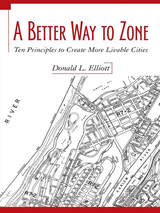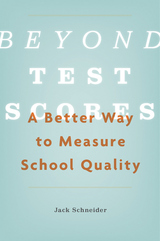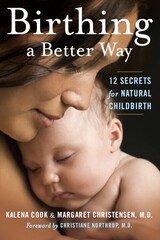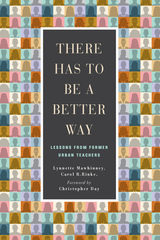
A Better Way to Zone explores the constitutional and legal framework of zoning, its evolution over the course of the twentieth century, the reasons behind major reform efforts of the past, and the adverse impacts of most current city zoning systems. To unravel what has gone wrong, Elliott identifies several assumptions behind early zoning that no longer hold true, four new land use drivers that have emerged since zoning began, and basic elements of good urban governance that are violated by prevailing forms of zoning. With insight and clarity, Elliott then identifies ten sound principles for change that would avoid these mistakes, produce more livable cities, and make zoning simpler to understand and use. He also proposes five practical steps to get started on the road to zoning reform.
While recent discussion of zoning has focused on how cities should look, A Better Way to Zone does not follow that trend. Although New Urbanist tools, form-based zoning, and the SmartCode are making headlines both within and outside the planning profession, Elliott believes that each has limitations as a general approach to big city zoning. While all three trends include innovations that the profession badly needs, they are sometimes misapplied to situations where they do not work well. In contrast, A Better Way to Zone provides a vision of the future of zoning that is not tied to a particular picture of how cities should look, but is instead based on how cities should operate.

When it comes to sizing up America’s public schools, test scores are the go-to metric of state policy makers and anxious parents looking to place their children in the “best” schools. Yet ample research indicates that standardized tests are a poor way to measure a school’s performance. It is time—indeed past time—to rethink this system, Jack Schneider says.
Beyond Test Scores reframes current debates over school quality by offering new approaches to educational data that can push us past our unproductive fixation on test scores. Using the highly diverse urban school district of Somerville, Massachusetts, as a case study, Schneider and his research team developed a new framework to more fairly and comprehensively assess educational effectiveness. And by adopting a wide range of measures aligned with that framework, they were able to more accurately capture a broader array of school strengths and weaknesses. Their new data not only provided parents, educators, and administrators with a clearer picture of school performance, but also challenged misconceptions about what makes a good school.
With better data, Schneider shows, stakeholders at the federal, state, and local levels can undo the damage of present accountability systems and build greater capacity in our schools. Policy makers, administrators, and school leaders can better identify where assistance is needed. Educators can engage in more evidence-based decision making. And parents can make better-informed choices for their children. Perhaps most importantly, better data can facilitate communication among all these groups, allowing them to take collective action toward shared, concrete goals.


Teacher attrition has long been a significant challenge within the field of education. It is a commonly-cited statistic that almost fifty percent of beginning teachers leave the field within their first five years, to the detriment of schools, students, and their own career development. There Has to be a Better Way offers an essential voice in understanding the dynamics of teacher attrition from the perspective of the teachers themselves. Drawing upon in-depth qualitative research with former teachers from urban schools in multiple regions of the United States, Lynnette Mawhinney and Carol R. Rinke identify several themes that uncover the rarely-spoken reasons why teachers so often willingly leave the classroom. The authors go further to provide concrete recommendations for how school administrators can better support their practicing teachers, as well as how teacher educators might enhance preparation for the next generation of educators. Complete with suggested readings and discussion questions, this book serves as an indispensable resource in understanding and building an effective and productive educational workforce for our nation’s students.
READERS
Browse our collection.
PUBLISHERS
See BiblioVault's publisher services.
STUDENT SERVICES
Files for college accessibility offices.
UChicago Accessibility Resources
home | accessibility | search | about | contact us
BiblioVault ® 2001 - 2024
The University of Chicago Press









